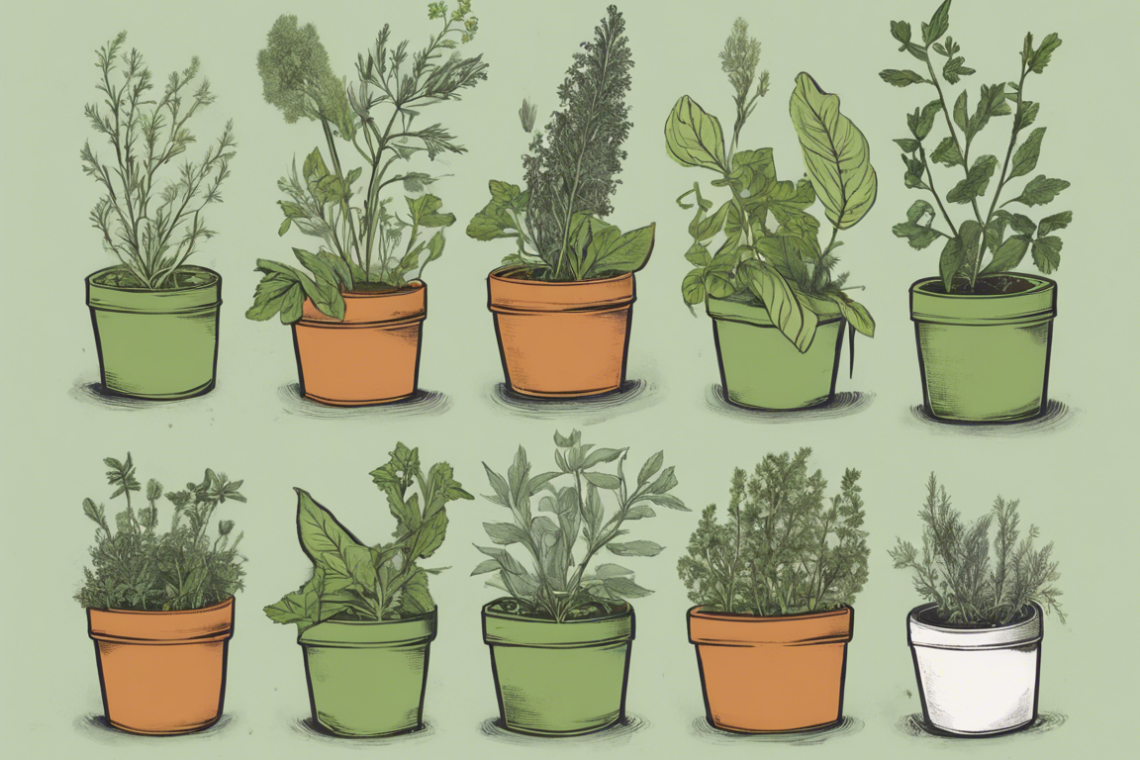Exploring the Local Herb Collective: A Community of Wellness
Introduction
Local herb collectives have gained popularity in recent years as more people seek natural and holistic approaches to wellness. These collectives are community-based organizations that focus on the cultivation, education, and promotion of herbs for health and well-being. By bringing together individuals with a shared interest in herbal medicine, these collectives create a supportive environment for learning, sharing, and growing. In this article, we will delve into the world of local herb collectives and explore the various aspects that make them a valuable resource for those looking to enhance their wellness journey.
What is a Local Herb Collective?
A local herb collective is a group of individuals who come together to cultivate, harvest, and utilize herbs for various purposes, including medicinal, culinary, and aromatic uses. These collectives are often formed in community gardens, urban farms, or cooperative spaces where members can grow and harvest herbs collectively. The primary goal of a local herb collective is to promote sustainable and holistic practices related to herbalism while also fostering a sense of community and connection among members.
Benefits of Joining a Local Herb Collective
There are numerous benefits to joining a local herb collective, including access to a wide variety of herbal resources, educational opportunities, and a supportive community environment. Some of the key benefits include:
– Access to Fresh Herbs: Members can enjoy a regular supply of fresh herbs for culinary and medicinal purposes.
– Education: Local herb collectives often offer workshops, classes, and hands-on experiences to help members learn more about herbal medicine and plant cultivation.
– Community Support: Being part of a local herb collective provides a sense of belonging and support from like-minded individuals who share a passion for herbal health.
Herbal Remedies and Wellness
Herbal remedies have been used for centuries as natural alternatives to conventional medicine. Local herb collectives play a crucial role in promoting the use of herbal remedies for wellness by providing access to fresh and organic herbs, education on herbal medicine, and support for incorporating herbal remedies into daily health routines. Some popular herbs used for wellness include:
– Lavender: Known for its calming and relaxing properties, lavender is often used in aromatherapy and herbal teas to promote stress relief and sleep.
– Echinacea: Echinacea is a powerful immune-boosting herb commonly used to prevent and treat colds and infections.
– Peppermint: Peppermint is known for its soothing effects on the digestive system and is often used to relieve nausea, indigestion, and headaches.
Getting Involved in a Local Herb Collective
If you are interested in joining a local herb collective, there are several ways to get involved:
– Attend community events and workshops hosted by the collective to learn more about what they offer.
– Volunteer to help with planting, harvesting, or organizing events.
– Become a member of the collective to gain access to herbal resources and community support.
Frequently Asked Questions (FAQs)
1. What types of herbs are commonly grown in local herb collectives?
Local herb collectives often grow a wide variety of herbs, including basil, rosemary, thyme, mint, and calendula.
-
How can I learn more about herbal medicine through a local herb collective?
Local herb collectives offer workshops, classes, and hands-on experiences to help members learn about herbal medicine and plant cultivation. -
Are herbal remedies safe to use for wellness purposes?
When used properly and in appropriate doses, herbal remedies are generally safe for most individuals. It is important to consult with a healthcare provider or herbalist before starting any new herbal regimen. -
Can I grow my own herbs at home if I don’t have access to a local herb collective?
Yes, many herbs can be grown at home in pots or a small garden. Resources like gardening books, online guides, and community gardening groups can help you get started. -
How can I find a local herb collective in my area?
You can search online for local herb collectives in your area, check community bulletin boards, or ask at local farmers’ markets or health food stores for information.
Conclusion
Local herb collectives offer a unique opportunity for individuals to connect with nature, community, and wellness through the cultivation and utilization of herbs. By joining a local herb collective, you can gain access to fresh and organic herbs, learn about herbal medicine, and be part of a supportive and educational community. Whether you are an herbal enthusiast or someone looking to explore natural approaches to health and wellness, a local herb collective can be a valuable resource on your journey to holistic living.








